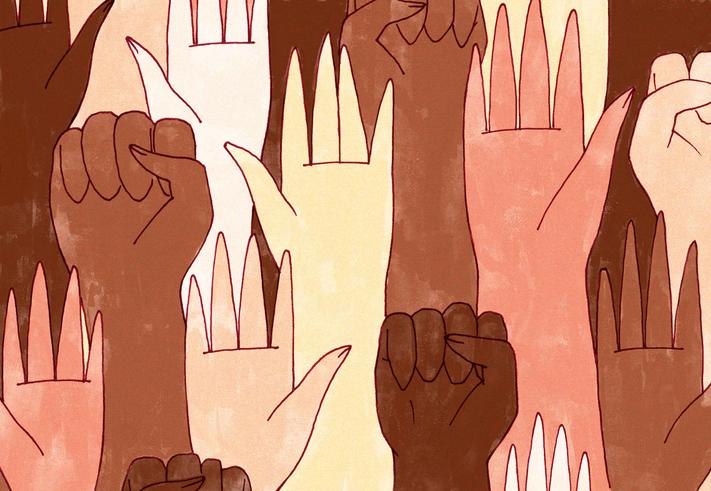Only 1.2 per cent of research council funding was awarded to Black or mixed Black students between the academic years of 2016-17 and 2018-19, revealed research conducted by Leading Routes in 2019. Like many other institutions working on reparations and racial inequality, the University of Glasgow considered it imperative to address this injustice.
Our university was the first in the UK to establish a programme of reparative justice. We also commissioned research and published a report called Understanding Racism, Transforming University Cultures and an associated action plan. In 2020, the university reviewed its own data on the under-representation of Black UK PhD students and found that only 1 per cent of its postgraduate research population was Black and UK-domiciled. This set the stage for our ambition to increase Black UK students’ access to PhD programmes.
Starting in 2021, the University of Glasgow decided to invest in diversifying its student body by launching the James McCune Smith (JMS) scholarship and development programme. The JMS programme recruits Black UK-domiciled students from across all disciplines to study in Glasgow. As of October 2024, we now have more than 50 JMS Scholars working across all disciplines at the university.
But it isn’t enough to just recruit students. We also wanted to ensure that once they had commenced their programme, our scholars were given the best possible chance of success during and beyond their PhDs. To this end, the programme takes a holistic approach to student success, including mentorship, networking, leadership training and a built-in placement programme.
Having been involved in the design of the programme and its conceptualisation, I believe the following aspects are crucial to anyone planning to implement a similar programme.
Consultation
Speak to as many people as possible. In fact, talk to anyone you can think of who might be able to provide valuable insight into what will make the programme the strongest it can be. For us, this has meant speaking to alumni about some of the barriers they have experienced prior to and during their PhDs, reviewing existing programmes and talking to the people who can support the programme. The perhaps unexpected highlight for me has been the enthusiasm and support from all parties.
Creation/co-creation
Create the programme with warmth and care and in a way that reduces the opacity of processes, particularly in relation to application systems and funding. This is easier said than done but requires timely communication and contact with prospective applicants to support them through the application process. We provide a timeline for applicants and also offer one-to-one drop-in sessions to offer tailored advice.
Warmth and care are also central to the ongoing success of the programme. We co-create with scholars by running short-life working groups that organise and deliver high-profile conferences and networking events. This ensures that our scholars feel a sense of belonging and ownership at all stages of the programme. To support this, we also hire two paid interns each year who provide valuable feedback and suggestions for improving programme delivery.
- Resource collection: Being Black in the academy
- Empower minority staff and students to thrive at your institution
- How to build inclusive mentorship programmes for Black students
Recruitment
Recruitment is one of the biggest obstacles facing a programme like ours. Overcoming this challenge requires meeting students and prospective students where they are, because traditional recruitment methods only go so far. For example, advertising on the usual platforms generates relatively few applications for this particular scholarship. In our first year, we were fortunate to have the support of an influential Black activist on social media. This widely disseminated information. Over time, it’s become clear that many applicants find out about the scholarships through WhatsApp and church groups, family members and now, in our third year, from our existing scholars.

Key suggestions
Deliver online information sessions to prospective applicants that provide insight into the application process and PhD study and offer drop-in sessions to answer specific questions.
Develop assessment metrics that evaluate the whole student, taking into account non-standard achievements. For example, ensure that the applicant’s personal statement is considered an equally important part of the application. Many of our scholars have returned to education following successful careers or career breaks. We want to ensure we do not penalise anyone for following a less conventional path.
Peer support
Students thrive in communities. This means that providing the foundations for peer support is vital to ensuring that they do not feel isolated. Of course, this can be hard to engineer. Informal networking and WhatsApp groups work well, but we also do some top-down community building with monthly scholar “connect” meetings, whereby scholars can share information or insights into PhD studies, receive updates about the programme or just chat with one another in an informal environment.
Supervision
Deliver anti-racism training for supervisors and a similar reflective session for scholars so they know the information their supervisors have been given and what they can expect.
Governance/sustainability
Ensure equitable governance by establishing a steering board that includes senior academics from the Black community. This will prove invaluable in terms of additional advocacy of the programme, providing academic credibility and, hopefully, in ensuring that the programme extends beyond its current funded period.
Extend reach beyond the university
Each year, we host an annual conference where scholars present their research and prominent Black academics deliver keynote speeches. The theme is determined by the scholars, and this year was Curating Circles: Finding Yourself and Others. The conference is open to everyone and many individuals from outside of the university have attended. This is an important aspect in ensuring the programme’s impact goes beyond the walls of the institution and the academy community as a whole.
We also deliver a programme of monthly events via the JMS Network, featuring Black speakers who share their experiences and work with our scholars and guests.
Ultimately, the JMS programme holds significant importance at the University of Glasgow. Those of us fortunate enough to work on it get joy from witnessing the incredible work of our scholars. We really are privileged to work with such talented people. We believe they are changing the university and the nature of scholarship, and that this is a hugely positive legacy.
Heather Lambie is the graduate school/DT Hub manager at the University of Glasgow.
The University of Glasgow is shortlisted for Outstanding Contribution to Equality, Diversity and Inclusion at the Times Higher Education Awards 2024 #THEAwards. A full list of shortlisted candidates can be found here.
If you would like advice and insight from academics and university staff delivered direct to your inbox each week, sign up for the Campus newsletter.




comment